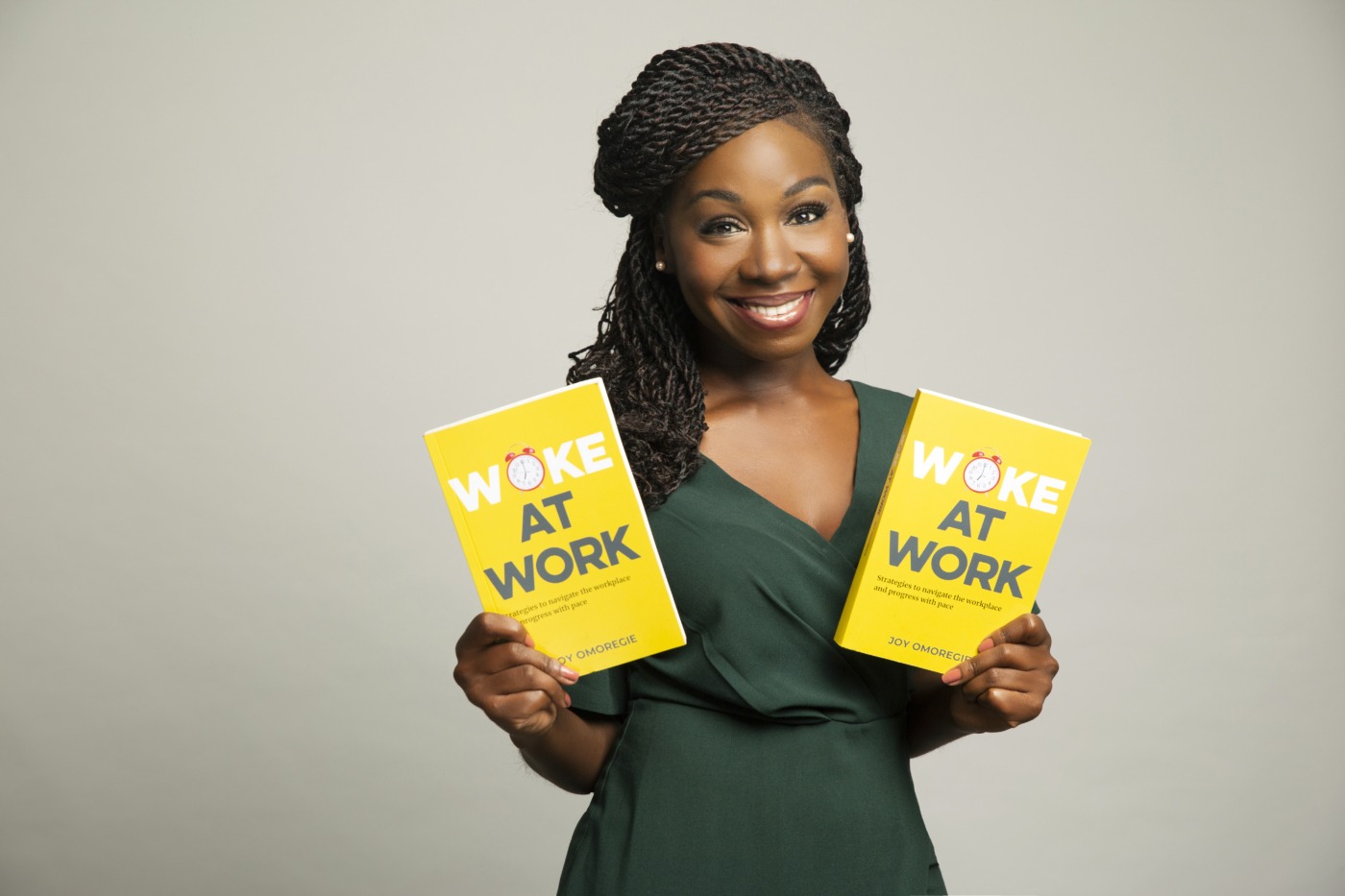‘Woke at Work’ by Joy Omoregie: an honest yet optimistic take on the working climate
The corporate world can be a frightening and intimidating place for anyone starting out. It can be a shock to the system, and one that takes time to adjust to. This is where Joy Omoregie’s new book Woke at Work, with the tagline Strategies to Navigate the Workplace, hopes to step in, as a guide on how to navigate the corporate world. It’s perfect for anyone at university who is considering their future career, and those who have recently graduated, and are starting their journey up the career ladder.
Omoregie states quite clearly at the start of the book that she aims to “put key information in the hands of anyone aspiring to have a corporate career”. The key information that Omoregie provides comes in part from her own experience of seeming to sleepwalk through her career, and information gathered as part of her research for the book. Omoregie elegantly combines these two streams of information into a thoughtful and conversational book that treats its reader like an equal, rather than someone to be talked down to.
Omoregie’s mixture of realism and optimism is a key element to the book’s believability and enjoyability
Omoregie is candid in her admission that though she came from an aspirational background, it was not one in which the corporate world was familiar. This allows the book to escape the simplistic boundaries of a self-help guide or an industry insider’s guide. This book’s partly biographical nature gives it a justifiable authenticity, giving the advice Omoregie imparts an added legitimacy.
Woke at Work is divided into eight parts. The first part deals with how to begin your career and some of the initial pitfalls that many people encounter when entering the corporate world. The second and third parts deal with both the fundamentals for work, and the best way to set yourself up for success. Parts four and five focus on managing your career and how to ensure that you act correctly in a variety of office scenarios. Six deals with how to leave your current role and how to navigate the hierarchy of office life, while the final section deals with how best to deal with procrastination and how to ensure that you aren’t disillusioned with the world of work.
This structure works well, as it deals with the various stages people often feel throughout their career – adulation at getting a job, manoeuvring their way through their new job, and how to deal with the dramatic shift from education to full-time work that catches many people unawares.
Omoregie is at her best when she focusses on the nitty-gritty personal aspects of life in work, that isn’t usually found in other careers books. For example, Omoregie makes the point that when she graduated: “Things felt very uncertain. That feeling of impending doom as headlines bombarded us, story after story with bad news, crises, economic meltdown, established companies and individuals gone with the wind.”
This book’s partly biographical nature gives it a justifiable authenticity, giving the advice Omoregie imparts an added legitimacy
This feeling of uncertainty is one that today many recent graduates will feel, thanks to the Covid-19 pandemic. Omoregie’s ability to empathise, and to explain that, despite the difficulty she found graduating during the 2008 crash, she felt she was “so rich, so blessed and full of potential”, is reassuring for recent graduates. Omoregie’s mixture of realism and optimism is a key element to the book’s believability and enjoyability. Her smooth and engaging prose makes the balancing act between the often-grim reality of work and her own positive determination to help others find work seem natural.
The section of the book that feels particularly relevant at the moment is the seventh section, which deals with working remotely and how to network online. Given the increase in availability of remote work and many companies wishing to do away with the traditional office, this part of the book will surely be essential reading for any recent graduate. Omoregie’s focus on the need to draw boundaries between online work and home life is also particularly well done, and especially important, given the need for firm boundaries between work and home so that the mental health of employees isn’t negatively impacted.
Self-help books can frequently feel as if they are not being honest with their reader; that they are selling them a false hope as to what can be achieved by reading them. Omoregie’s is the opposite, and her upbeat honesty is what makes Woke at Work stand out from its competitors. Its mixture of optimism and realism, personal and public information, and its endearing determination to help others makes it a must read for anyone going on that long and uncertain journey into the working world.

Comments